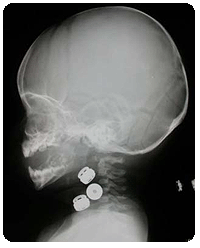

|
Pediatric Forensic Pathology
Pediatrics is the area of medicine that deals with the health and diseases specific to children and adolescents. Pediatric Pathology is the interpretation of tissues and body fluids to diagnose the presence or absence of disease to children and adolescents Forensic Pathology is a subspecialty of pathology focused on providing an opinion regarding the cause, mechanism, and manner of disease, injury, or death. The Forensic Pathologist is specially trained to help coordinate the performance of a comprehensive medicolegal death investigation, and interpret physical findings and biological evidence. What is a Case Review and what is the Role of the Pediatric Forensic Pathologist? The process of forensic review in the death of a child requires analysis of the evidence to determine cause and manner of death. The analysis demands a review of medical records and autopsy materials, the circumstances of the child's life and medical conditions, as well as the investigation pertaining to the circumstances and activities of the child in the days and hours before presentation to medical attention. The role of the Pediatric Forensic Pathologist is to provide forensic medical expertise in cooperation with law enforcement, legal and social service systems, to the investigation of death or injury to children and adolescents. In addition there is a larger responsibility to contribute to the body of forensic medical knowledge, access and be familiar with current medical literature and research, and contribute when possible to the medical education of those responsible for the application of medical legal issues and findings of fact in court. The Pediatric Forensic Pathology must……
The manner of death is a legal determination based on evidence and expert opinion. The pathologist has the authority to perform a medical legal autopsy, investigate and interpret findings and evidence and certify the manner of death by the following categories:
The pathologist carefully documents the findings at autopsy, which often include radiographic examination; diagrams and photographs; external, internal, and microscopic, examination; and special laboratory testing. Some deaths may require special consideration, consultation and testing by a variety of key disciplines such as neuropathology and cardiac pathology, to make a final determination of cause and manner of death. The Forensic Pathologist will coordinate the need for these additional tests. The Forensic Pathologist will often become involved in the investigation of injury to living patients using the same statutes, guidelines and procedures as they would for decedents. |